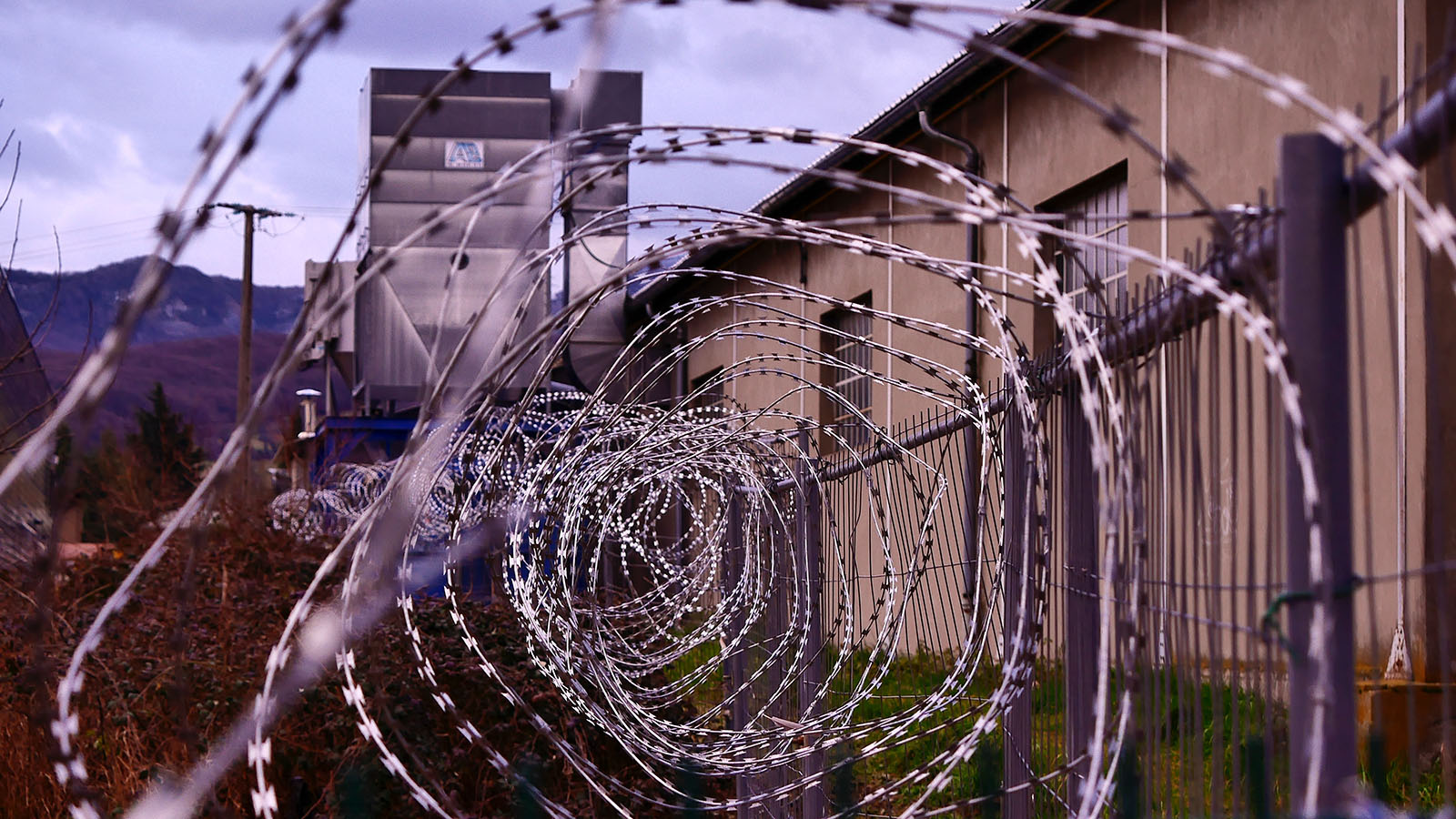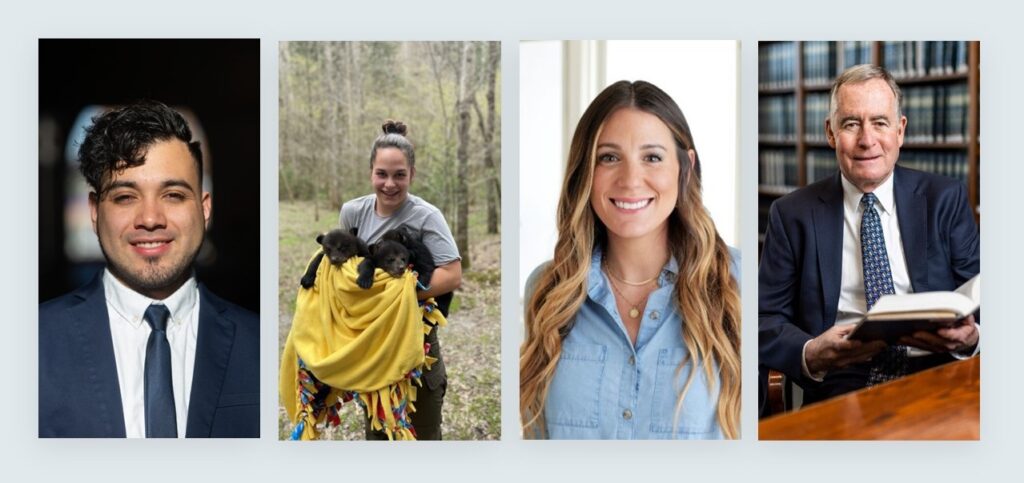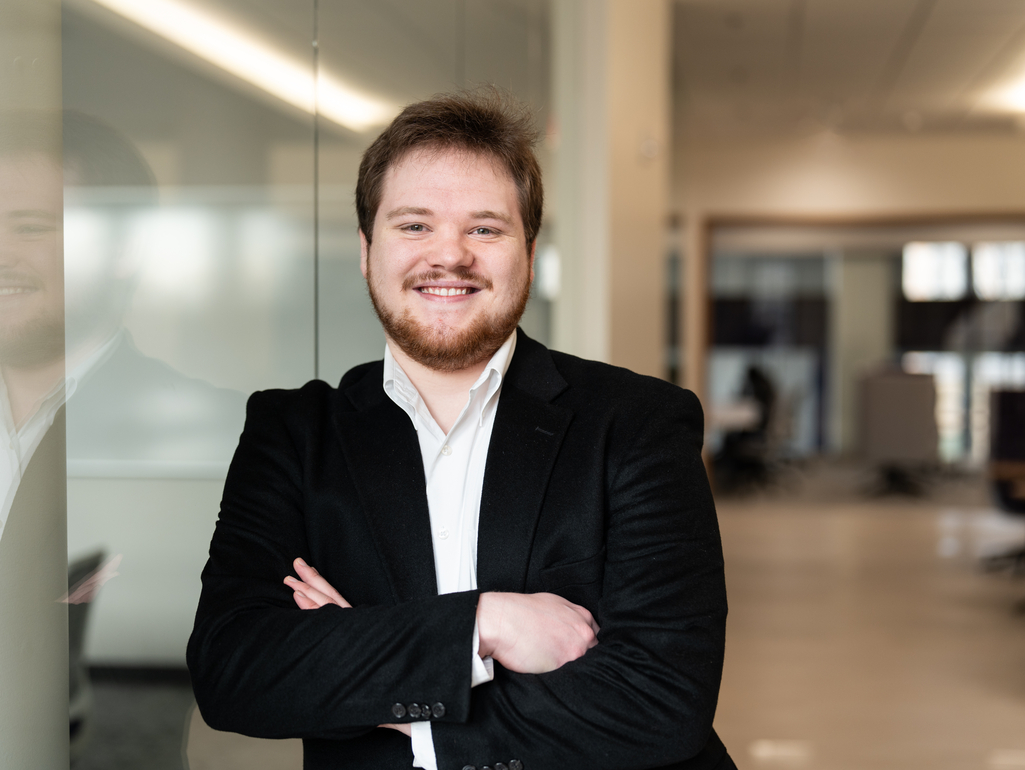Tommie Experts taps into the knowledge of St. Thomas faculty and staff to help us better understand topical events, trends and the world in general.
School of Law Professor Mark Osler is one of the foremost legal scholars in the country on clemency; his work advocates for sentencing and clemency policies rooted in principles of human dignity.

School of Law Professor Mark Osler
As COVID-19's potential impact on the country's prison system continues to be explored nationally and in Minnesota, the Newsroom spoke with Osler to get his thoughts on clemency's role, find out what work he and his students are doing, and what impact he hopes the current challenge has on national values.
Editor's note: This interview has been edited and shortened for clarity.
You have spent much of your career looking at inequities and disparities in prison populations. How do you describe the broad view of what clemency is and why it’s so important to consider reforming the policies?
It really means different things to different people. When I’m speaking to people of faith, it’s one of those few places where the Constitution and our faith perfectly align. The Constitution has this vehicle for a societal grant of mercy. Our faith calls on us to consider mercy as part of the way we view others. There’s this deep sounding that crosses over between law and faith.
Almost any source of principles or system view about how the world works requires balance. One thing we find it easy to go to as a society is retribution and punishment. For that to be in balance, we need to have something at the other end where clemency as a form of mercy comes in. We can consider that person at a different point in life, often when they’ve changed quite a bit.
What kind of things about the way we have structured our prison systems that are so imbalanced where things like clemency don’t balance things out away from overpopulation of this system?
What comes into play with this is process subverting clemency. You have at the federal seven levels of review sequential before someone can get clemency, whether commutation or reprieve. At the state level we have a positively bizarre system where you have to personally appear before the governor, the attorney general and the chief justice of the Supreme Court and plead your case. Almost always without a lawyer. We’ve set up these processes that hinder clemency.
I’ve had a number of students in my clinic who were U.S. Marines. One of them had this phrase that was really eloquent. He was a truck driver, and said, ‘Sometimes we had to build the road before we could drive down it.’ That’s part of what we do in our clemency work with my students. We work in retail and wholesale. We find the stories and tell the stories of individuals, but also worry about the process. Over and over we find that’s where the problem is. Even when the political will is there, process gets in the way.
Where we stand now, the roads we have or don’t have for this current moment of COVID-19 and a virus that can spread so potently through a place like prison, how do you view what this means for the idea of clemency, right now?
We do know the danger in prison is existential. We have deaths in the state of Michigan; they’ve had extraordinary tragedies in their prisons. We’ve been somewhat lucky here not to have the numbers of deaths we have in other places. The problem is that you have people locked in a confined space with no possibility for social distancing, little ability to clean and disinfect things. Because of that, there really does have to be a serious change. That means lessening the population so people can spread out more.
Clemency is a great tool to do that. There are a couple tools: commutation, so people are toward the end of their sentence you can cut that sentence short, free them and monitor them. Another is reprieve. That’s a pause on a sentence where you can let someone out with the expectation that they come back. People say, ‘Oh, they’ll never come back.’ You do. Situations where people are released, for example, on bail, the rates are high. We have these tools available and haven’t been employed as widely as they should have been.
How do you use these ideas and policies in how you teach? How have things changed, if at all, in how the ideas are being discussed around this current moment?
This has always been my take on things. I’m from a family of social workers. A great thing about social workers is that they think of both retail and wholesale. They work with people and also think about the process and address them and do what they can to fix them.
When I first came to St. Thomas in 2010, one of the first things I started working on was meeting with the Obama administration to use clemency in a much more active way. Eventually we succeeded and they did commute more than 1,700 cases, which was significant. Not as many as they should have, but it was something good. What’s different now is that temporal aspect. There is an emergency. Now we’re working in a different way on the policy level.
With my students we’ve been working with the Department of Corrections to have a medical release program. We are working with the two other law schools [in the Twin Cities] … we’ve teamed up and enlisted and trained several students and they’re helping people apply for medical release during the pandemic.
With these huge, changing contexts of everything in the U.S. amidst COVID-19, what else have you been thinking about in regard to clemency and our prison system?
Having been through the experience of this pandemic … it’s going to change our values. Things always do that; big events shove us one way or another. I hope one thing it does is shove us toward compassion, toward those better angels that tell us things like clemency are important. There has to be balance on the other side and it’s going to be a better conversation because of the challenges we’re facing together.
It would be a really important change, and one already we’re starting to see. There’s a great experiment going on. You have a lot of people being released from prisons and jails and crime has gone down. That is something going forward we’ll hopefully look to and say, ‘We can incarcerate fewer people and still be safe.’ That’s going to be a really important point to look to as we go forward.







